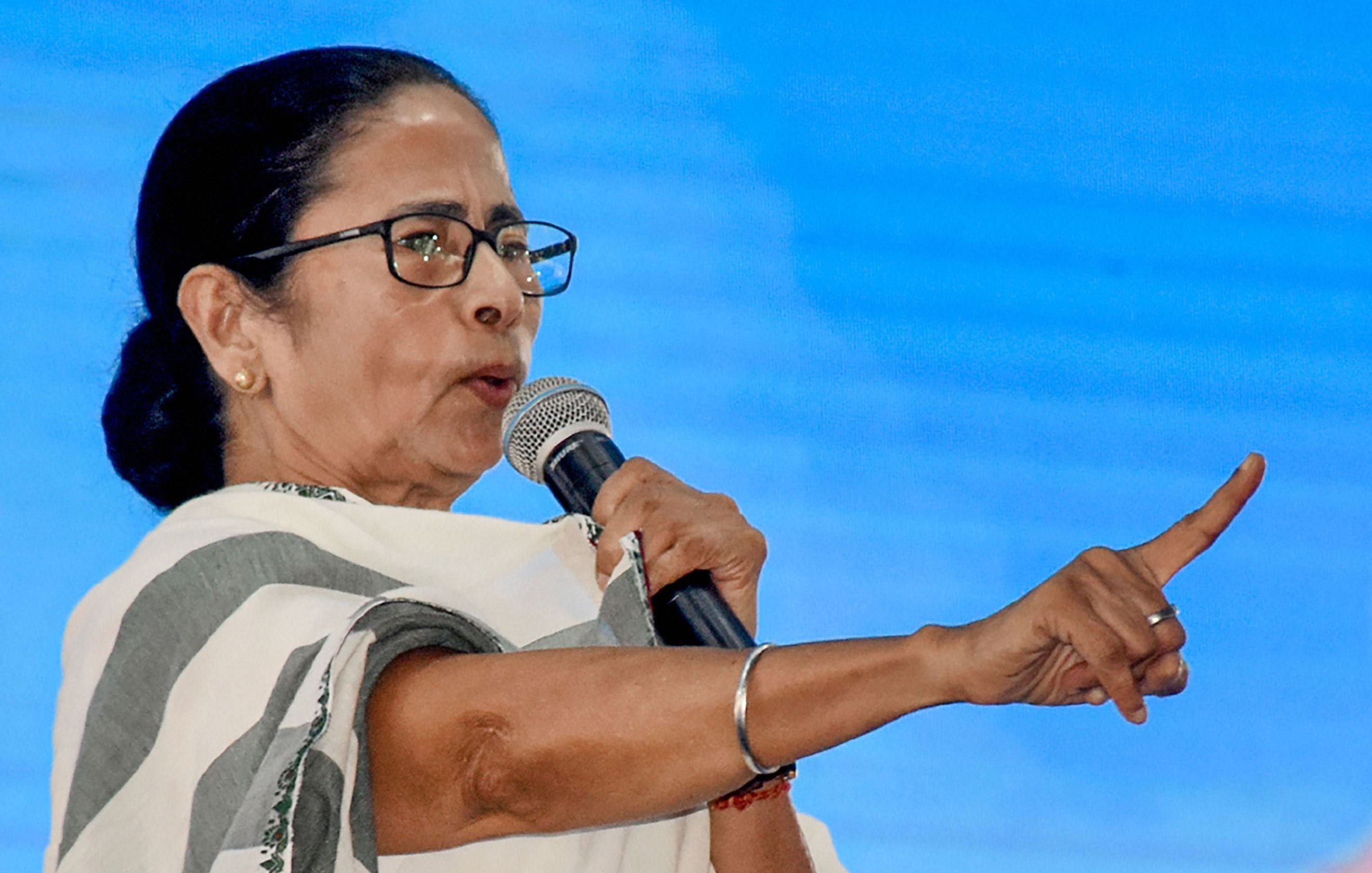
Mamata's biggest challenge is to stem rot in Trinamool Congress
The problem of corruption in the party has become more intense after the state government opened up its coffer to provide relief in the wake of the coronavirus outbreak, and the destruction caused by super cyclone Amphan.

In January 1998, when Mamata Banerjee floated her party, after breaking away from the Congress, she named it Trinamool — grassroots in Bengali — to emphasise the importance of lower-rung functionaries in her nascent outfit.
Twenty-two years later, much to her chagrin, these grassroot-level leaders and functionaries have become the Achilles’ heel of the party for their increasing involvement in corruption. The things have now come to such a pass that even the repeated warnings from the party supremo are failing to rein in the menace, prompting senior party leaders to vent their frustrations in public.
The problem has become more intense after the state government opened up its coffer to provide relief in the wake of the coronavirus outbreak, and the destruction caused by super cyclone Amphan.
Within days of the cyclone making landfall, the TMC government made a direct cash transfer of ₹20,000 to each of the five lakh families that lost their homes. It also released ₹5,000 each for the farmers whose betel orchards were damaged and ₹1,500 per acre for over three lakh farmers who lost their standing crops and produce. This was in addition to the compensations the government promised to adjust against wages under the Mahatma Gandhi National Rural Employment Guarantee Act (MGNREGA).
Related news: Cyclone Amphan generates momentum for MGNREGA works in West Bengal
On the ground, instead of the real victims, a section of TMC’s gram panchayat level leaders allegedly cornered the financial aids by diverting it to bank accounts of their own family members and relatives.
One such irregularity came to light and an inquiry was ordered after a professor from the Rabindra Bharati University in Nadia district lodged a complaint at the Block Development Office, Kalyani.
In his complaint professor Narayan Haldar said, “When I came across a list of 28 people from my locality whose houses were destroyed in the Amphan, I was amazed to find 20 names belonging to those who have either one-storey or two-storied concrete houses, which were intact.”
These made-up beneficiaries are allegedly related to the TMC’s panchayat leaders of the area.
Similar allegations also surfaced from the district’s Shantipur area, which led to public protest in front of the panchayat office on June 4.
Infighting within the party allegedly over share of money being used for relief works surfaced in various flood affected areas of North and South 24 Parganas districts.
In one such clash in the Bhangar area of South 24 Parganas, seven people were injured, including TMC youth leader Badal Mollah, as two groups flung crude bombs.
Earlier, violent protests had erupted across the state over the distribution of free ration for all announced by the state government after the COVID-19 pandemic forced a countrywide lockdown, leaving many unemployed.
Related news: Trinamool wants direct transfer of MPLADS money to migrant workers
Incidentally, chief minister Mamata Banerjee last year publically flayed party councillors and panchayat leaders over allegations of taking “cut money (bribe)” from beneficiaries of state-funded welfare schemes.
But, her admonishment did not have the desired impacts as has been evident from the recent incidents.
Grabbing the opportunity, BJP state president Dilip Ghosh has made it clear that in the next year’s assembly elections the party would make the TMC government’s handling of the twin crises of COVID-19 and Amphan its main electoral planks.
The CPI (M) and the Congress too have become vocal over the relief-related corruptions. In fact, several TMC leaders themselves are getting annoyed and worried over the menace.
Some like TMC’s Lok Sabha MP Mahua Moitra even came out with a video clip to highlight the tentacles of grassroots corruption.
Moitra, in a video message, alleged that the gram panchayats were not taking up works worth over ₹3.5 lakh to bypass administrative scrutiny. She attempted ostensibly to make people aware of their rights and to stand up against corruption by local leaders.
She was referring to gram panchayats within her constituency, Krishnanagar, mostly run by her own party.
Related news: BJP hopes to ride ‘Amphan fury’ to power in Bengal
A similar concern was also reflected in the chief minister’s instruction to district administrations, during a video conference last week, that all reliefs should be distributed only through government machinery and no genuine victim should be left out of the relief package.
Earlier, in a meeting with party leaders and functionaries, she instructed them to ensure members of other parties should not be discriminated against while disbursing reliefs.
“This is government’s aid meant for all the people of the state who are suffering from the worst natural disaster Bengal has witnessed in centuries. All victims must get ration, water and tarpaulin. It is not the time for politics,” she told the party leaders and functionaries.
“Those who do not toe the party line thinking they have become too big, they can leave,” she told her party colleagues.
Her diatribes, however, are perceived as empty rant as TMC leaders admit in public it’s not easy to take action against these local satraps, more so when the BJP is waiting with a bait to poach them.

